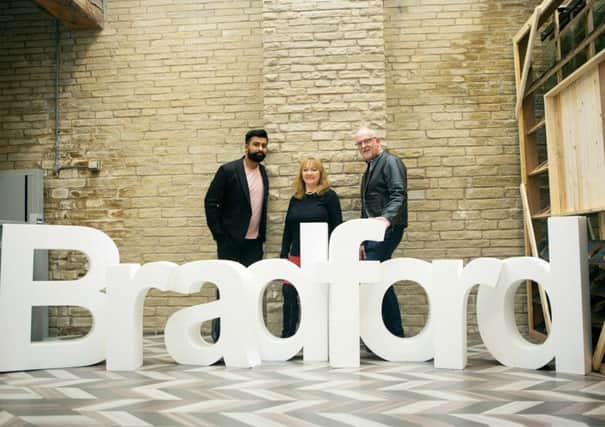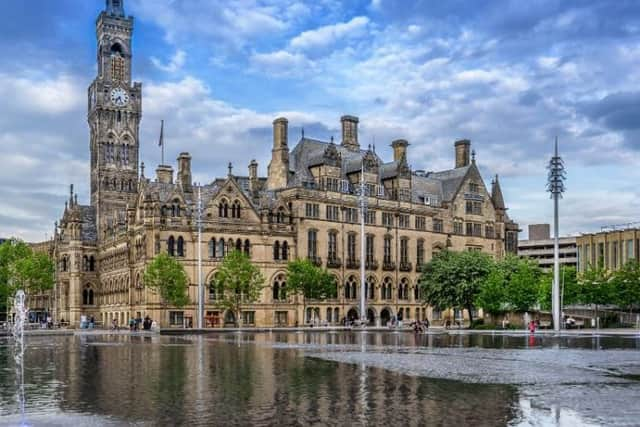Councils should not have to gamble on City of Culture bids – David Behrens


It is 20 years since Bradford City scaled the unexpected heights of the Premier League, and after two seasons there it has been a mostly downhill ride for them.
Their story is a metaphor for the city itself. Decades of mismanagement by councils of every political colour have left it a pale shadow of its former self. This week it held out the begging bowl once more, although the Government preferred it to be seen as a competition.
Advertisement
Hide AdAdvertisement
Hide AdIn setting out its stall to be named the UK’s City of Culture in 2025, Bradford hoped the judges would take a liberal view of what might reasonably be considered cultural. Football and keeping a faith deserved to be considered, said the bid director, who had seen his own faith tested two days earlier when City lost 2-1 again.


Bradford will compete with Luton, Southampton, the Tees Valley, Medway and the whole of Lancashire in the race to be named a cultural capital. All are equally needy, in their different ways. There will be others, too, who have yet to declare their hand, and each will be expected to prepare a costly and time-consuming submission.
And therein lies a problem, because councils that can least afford to do so are being made to divert resources that should be used for other services, into chasing a pot of gold.
Advertisement
Hide AdAdvertisement
Hide AdNorthampton is a case in point. Once as rich in shoe factories as Bradford was in mills, its centre is now decaying and dying, according to a native, the broadcaster the Rev Richard Coles. It had wanted the Capital of Culture title to help kickstart a revival, but has decided it can’t afford to compete for it, because its budget is already overspent.
Where is the logic in that? It’s like a homeless person declining a five pound note because his hands are too cold to pick it up.
This is a lottery with too few winners. There can be only one City of Culture in 2025, so if six councils bid, five will have wasted their money. That sort of competitive pitch is common in the private sector, where you have to invest to profit, but it’s an entirely inappropriate use of public funds.
Advertisement
Hide AdAdvertisement
Hide AdIt’s also unnecessary. The whole thing could be thrashed out informally, among councils who have expressed an interest.
The last City of Culture, two years ago, was Hull, and although there was undeniably a buzz about the place, the city’s university concluded last week that it was too early to say whether the £32.8m it had cost had been worth it. Tourism had been boosted and the cultural sector made more ambitious, but young people and ethnic minorities had been under-represented.
The problem, said the university, was in identifying what culture actually meant to different groups. That’s also the point they were making in Bradford in invoking football, religion and even curry. Having been named the UK’s curry capital six times in a row, counted to its credit, we were told.
On my last visit there, I was struck by how differently my son and I saw it. I had gone for a summer exhibition at the new central library and thought it dispiriting that it was much smaller than the building it had replaced. Yet just outside, my son was transfixed by the disparate groups running stalls, as if it were a village green. He had seldom seen such community spirit in a city centre, he said. And he lives in Liverpool, where it runs in the water.
Advertisement
Hide AdAdvertisement
Hide AdIt is Liverpool to which the statisticians turn in calculating the benefits of culture. Its turn as the European cultural capital in 2008 brought in nearly 10m visitors. Perhaps more importantly, media coverage of its cultural attractions doubled and for the first time in decades, positive stories outweighed negative ones. Some 85 per cent of Liverpudlians agreed that it was a better place to live than before.
That last statistic is the most important one. A cloud of negativity has long hung over Bradford, and a cultural renaissance might help blow it away. But in making councils compete for cash in the way it does, the Government is feeding an addiction. Town Halls feel compelled to gamble money they haven’t got, on what may turn out to be a pipe dream.
There must be a less divisive way of pursuing a cultural agenda.